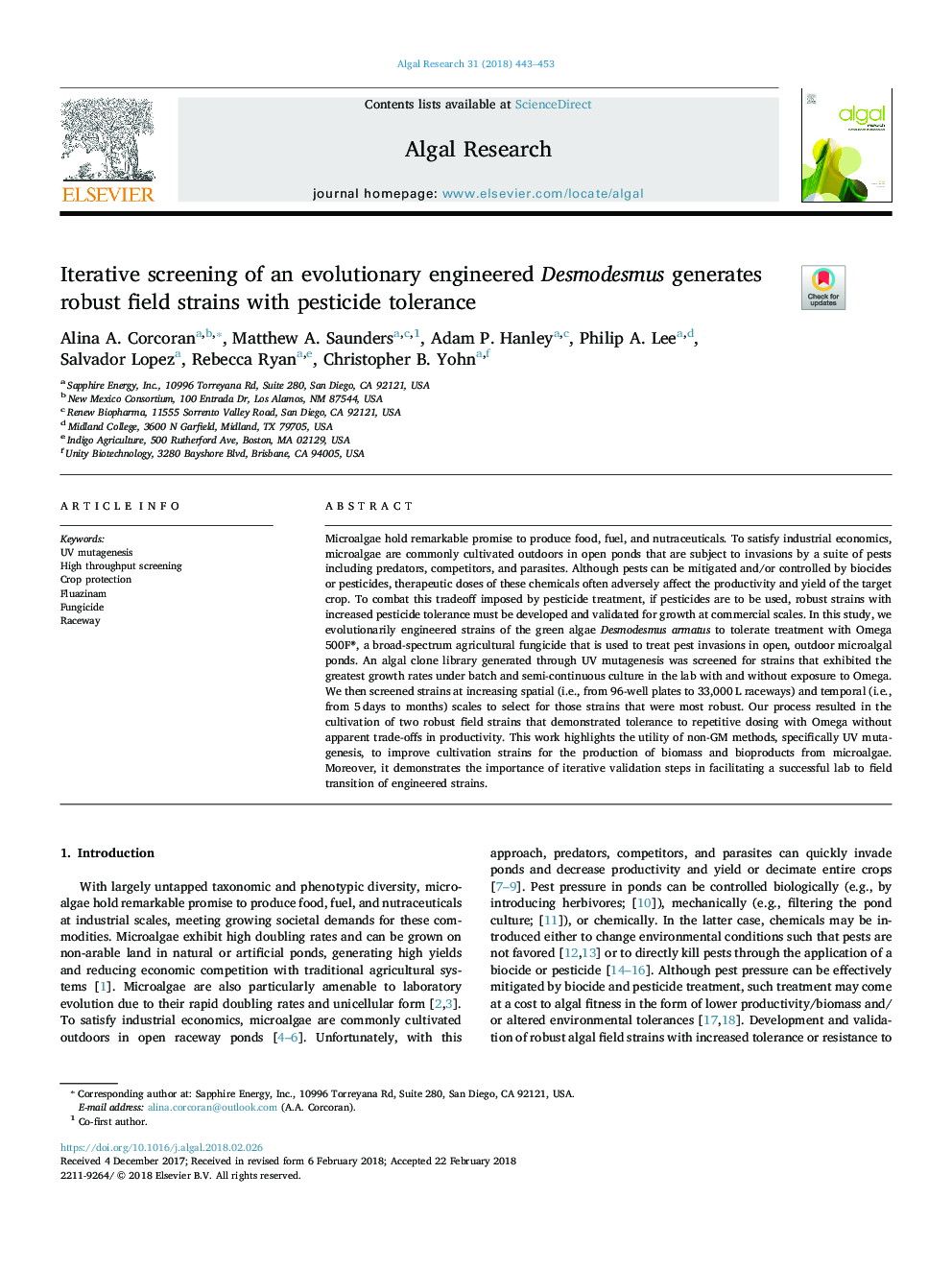| Article ID | Journal | Published Year | Pages | File Type |
|---|---|---|---|---|
| 8086092 | Algal Research | 2018 | 11 Pages |
Abstract
Microalgae hold remarkable promise to produce food, fuel, and nutraceuticals. To satisfy industrial economics, microalgae are commonly cultivated outdoors in open ponds that are subject to invasions by a suite of pests including predators, competitors, and parasites. Although pests can be mitigated and/or controlled by biocides or pesticides, therapeutic doses of these chemicals often adversely affect the productivity and yield of the target crop. To combat this tradeoff imposed by pesticide treatment, if pesticides are to be used, robust strains with increased pesticide tolerance must be developed and validated for growth at commercial scales. In this study, we evolutionarily engineered strains of the green algae Desmodesmus armatus to tolerate treatment with Omega 500F®, a broad-spectrum agricultural fungicide that is used to treat pest invasions in open, outdoor microalgal ponds. An algal clone library generated through UV mutagenesis was screened for strains that exhibited the greatest growth rates under batch and semi-continuous culture in the lab with and without exposure to Omega. We then screened strains at increasing spatial (i.e., from 96-well plates to 33,000â¯L raceways) and temporal (i.e., from 5â¯days to months) scales to select for those strains that were most robust. Our process resulted in the cultivation of two robust field strains that demonstrated tolerance to repetitive dosing with Omega without apparent trade-offs in productivity. This work highlights the utility of non-GM methods, specifically UV mutagenesis, to improve cultivation strains for the production of biomass and bioproducts from microalgae. Moreover, it demonstrates the importance of iterative validation steps in facilitating a successful lab to field transition of engineered strains.
Related Topics
Physical Sciences and Engineering
Energy
Renewable Energy, Sustainability and the Environment
Authors
Alina A. Corcoran, Matthew A. Saunders, Adam P. Hanley, Philip A. Lee, Salvador Lopez, Rebecca Ryan, Christopher B. Yohn,
